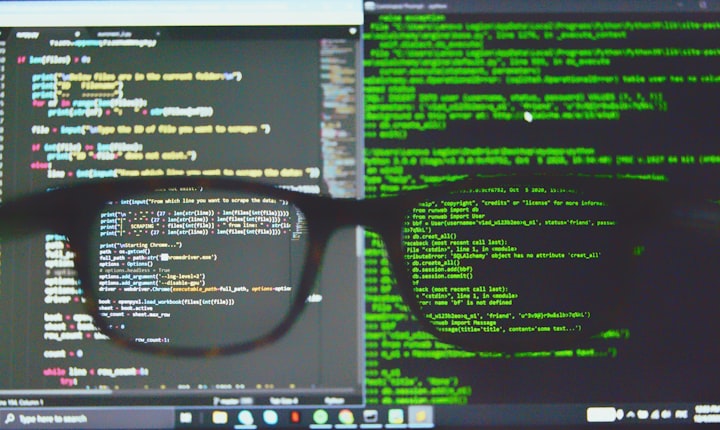
Are you scared of robots taking over the jobs of doctors? Well, let me tell you something. The future of medicine lies in artificial intelligence (AI). That's why I recommend creating a career in AI or machine learning.
Artificial Intelligence is a field where computer systems attempt to simulate human cognitive capabilities such as problem solving, decision making and learning. Machine learning algorithms allow computers to get smarter through experience and training. This new branch of computing was pioneered by Alan Turing in 1950. Since then, AI has progressed at a rapid pace. In 2018 alone, the global AI market size is forecasted to reach $157 billion by 2025.
"This year, AI technologies are being implemented across various industries including healthcare. As a result, health care providers are starting to incorporate AI into their workflow. For example, patients with diabetes can use AI to monitor their blood sugar levels 24 hours a day."
1. AI can help diagnose illnesses better than doctors
With the advancement of Artificial Intelligence (AI) technology, machines are now able to diagnose diseases much better than human physicians. With deep learning algorithms, AI systems have learned how to identify patterns in large amounts of data in order to make accurate predictions about the patient’s condition. This has led to the creation of health-related products that improve the lives of patients. One example is IBM Watson Health, which provides tools for medical professionals to help them analyze medical records and provide better care to their patients.
2. AI can find cures for rare diseases
Rare diseases affect millions of people around the world, but only 1 in 2,000 children worldwide are born with these conditions. In addition to this, many medications used to treat these diseases can cause severe side effects. However, thanks to AI, scientists are working hard to create treatments that would not only cure the disease but would do so without causing any harmful side effects.
3. AI can predict drug interactions better than humans
Every year, pharmaceutical companies spend billions of dollars developing drugs that could potentially save lives. But if they don't take into account potential negative reactions from other medicines taken by patients, then these drugs may actually harm them instead of helping them. AI systems are beginning to replace human experts in predicting possible drug interactions and prevent serious consequences from taking place.
4. AI has the ability to reduce the cost of healthcare delivery through improved efficiency and effectiveness.
There would be less need to hire hospital employees to do administrative work, fewer doctors and nurses and reduced hospital footprint. Moreover, these AI systems could improve patient care by reducing doctor’s visits, repetitive tests and procedures.
5. AI could enhance the delivery of healthcare globally.
Since there is always a demand for better healthcare around the world, it follows that AI based healthcare solutions will become increasingly valuable like how mobile apps have transformed the way people communicate both online and offline.
6. Artificial Intelligence (AI) has the potential to revolutionize modern healthcare systems and how we deliver services to patients.
This AI is not just some theoretical concepts but already exists. With the emergence of deep learning technologies, neural networks are able to create AI systems that can help us identify disease patterns, self-diagnose symptoms, and even conduct surgeries at a fraction of what human doctors cost.
7. Healthcare costs are soaring worldwide while health outcomes remain largely stagnant/deteriorating.
Cardiovascular diseases (CVDs), cancer, diabetes, chronic respiratory diseases, etc., cause death worldwide. Disease management through medication /surgery cannot keep up with increasing demand. However, using AI healthcare solutions, individuals suffering from CVD, cancer, or any other chronic illness can get healthier faster than ever before.
8. AI system accuracy rates are growing rapidly.
Across many industries, including manufacturing, finance, agriculture, education, customer service and healthcare. As the technology becomes further integrated in our daily lives, businesses may start depending on AI systems to make critical business decisions.
About the Creator
Greg RS
I write about self-development, business, and more. I also share some worthy insights :)






Comments
There are no comments for this story
Be the first to respond and start the conversation.